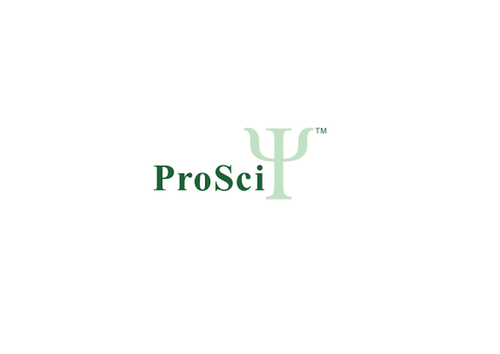Product Description
Adiponectin Antibody | 3553 | ProSci
Host: Rabbit
Reactivity: Human, Mouse, Rat
Homology: Predicted species reactivity based on immunogen sequence: Bovine: (100%) , Chicken: (91%)
Immunogen: Adiponectin antibody was raised against a 15 amino acid synthetic peptide from near the amino terminus of human adiponectin.
The immunogen is located within amino acids 40 - 90 of Adiponectin.
Research Area: Signal Transduction, Neuroscience
Tested Application: E, WB, IHC-P
Application: Adiponectin antibody can be used for the detection of adiponectin by Western blot at 1 to 4 μg/mL. Antibody can also be used for immunohistochemistry starting at 1 μg/mL.
Antibody validated: Western Blot in rat samples and Immunohistochemistry in rat samples. All other applications and species not yet tested.
Specificiy: N/A
Positive Control 1: Cat. No. 1463 - Rat Brain Tissue Lysate
Positive Control 2: N/A
Positive Control 3: N/A
Positive Control 4: N/A
Positive Control 5: N/A
Positive Control 6: N/A
Molecular Weight: N/A
Validation: N/A
Isoform: N/A
Purification: Adiponectin Antibody is affinity chromatography purified via peptide column.
Clonality: Polyclonal
Clone: N/A
Isotype: IgG
Conjugate: Unconjugated
Physical State: Liquid
Buffer: Adiponectin Antibody is supplied in PBS containing 0.02% sodium azide.
Concentration: 1 mg/mL
Storage Condition: Adiponectin antibody can be stored at 4˚C for three months and -20˚C, stable for up to one year. As with all antibodies care should be taken to avoid repeated freeze thaw cycles. Antibodies should not be exposed to prolonged high temperatures.
Alternate Name: Adiponectin Antibody: ACDC, ADPN, APM1, APM-1, GBP28, ACRP30, ADIPQTL1, ACDC, Adiponectin, 30 kDa adipocyte complement-related protein
User Note: Optimal dilutions for each application to be determined by the researcher.
BACKGROUND: Adiponectin Antibody: Adipose tissue of an organism plays a major role in regulating physiologic and pathologic processes such as metabolism and immunity by producing and secreting a variety of bioactive molecules termed adipokines. One highly conserved family of adipokines is adiponectin/ACRP30 and its structural and functional paralogs, the C1q/tumor necrosis factor-alpha-related proteins (CTRPs) 1-7. Unlike the CTRPs, which are expressed in a wide variety of tissues, adiponectin is reported to be expressed exclusively by differentiated adipocytes. These proteins are thought to act mainly on liver and muscle tissue to control glucose and lipid metabolism. An analysis of the crystal structure of adiponectin revealed a structural and evolutionary link between TNF and C1q-containing proteins, suggesting that these proteins arose from a common ancestral innate immunity gene. It is present in high levels in normal human plasma, but is reduced in obese subjects and often in those with increased insulin resistance and type 2 diabetes, suggesting that adiponectin may be a useful pharmacological target in various metabolic diseases.
 Euro
Euro
 USD
USD
 British Pound
British Pound
 NULL
NULL
















